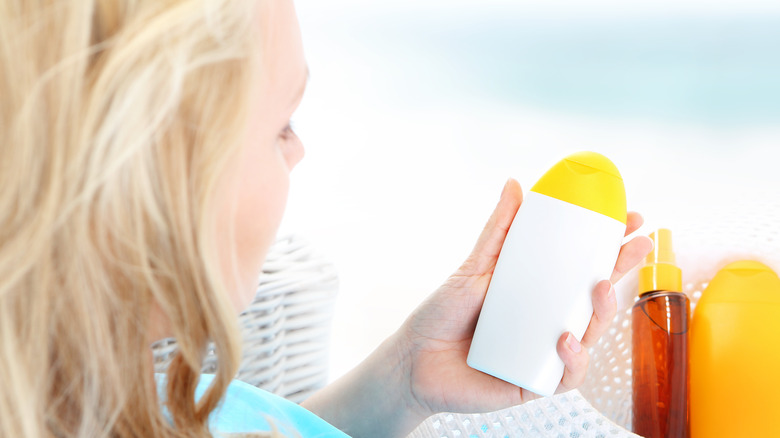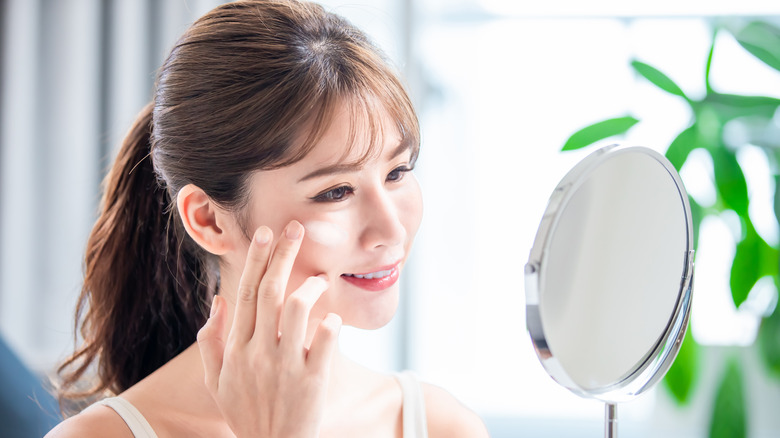Mineral Vs. Chemical Sunscreen: Which Is Better To Wear Under Makeup?
You probably know you should wear sunscreen every day to help protect your skin against signs of aging and cancer. According to Johns Hopkins Health, wearing sunscreen is one of the easiest and best things you can do for your skin. For daily use, you should choose at least SPF 30, and if you'll spend time outdoors, then up that SPF to 60 or greater. Interestingly, when you put sunscreen on your face as part of your daily routine, the order does not matter much, so you're free to choose a way that works best for you. However, if you think your makeup that includes SPF is enough to protect your face, think again. The reason? It takes about an ounce of sunscreen to provide the protection you need on your face, shoulders, neck, and chest, and it's unlikely that you wear that much makeup each day.
Knowing which type of sunscreen to use daily can be tough to figure out. A mineral sunscreen blocks the sun's harmful rays using ingredients like zinc oxide and titanium dioxide that sit atop your skin, providing a barrier, according to The Pioneer Woman. In comparison, a chemical sunscreen uses ingredients like oxybenzone, avobenzone, octisalate, octocrylene, homosalate, and/or octinoxate that absorb into your skin, protecting it. So do you use a chemical or mineral sunscreen? Is there one that works better than the other for daily use? Read on to find out more about how to pick SPF protection for your everyday life.
Here's why you should consider using both mineral and chemical sunscreen daily
Board-certified dermatologist Dr. Dendy Engelman told The Pioneer Woman that neither chemical nor mineral sunscreen is perfect. "My main focus is to prevent sun damage that could turn into cancer or another fatal disease," she said. "Using the both together ensures full protection." She did note, though, that mineral sunscreens provide immediate protection because they form a barrier as soon as you apply them, while chemical SPF needs about 30 minutes to absorb and fully take effect, which might be something you consider when creating a daily makeup routine that includes sunscreen.
Another possible thing you should consider is that chemical sunscreens might absorb into the bloodstream, which is why Dr. Engelman pointed out that she had specific recommendations for certain situations. "Right now, we recommend that pregnant women and children avoid chemical sunscreens. Since mineral sunscreens are not absorbed into the bloodstream, they are safe for all skin types and ages," she said.
Ultimately, when it comes to sunscreen, you actually have to use it to get protection from the sun. Johns Hopkins Health also recommended reapplying throughout the day unless you spend most of your time indoors away from windows. You can also achieve additional protection by wearing wide-brimmed hats, sunglasses, and protective clothing outdoors, in addition to spending as much time as you can in the shade when you go outside.

